Music-Crash-Course-Counting-Beats
Counting Beats
Common and Cut Time
 This symbol is often used in place of the 4/4 time signature. It is called 'common time'.
This symbol is often used in place of the 4/4 time signature. It is called 'common time'.
 This symbol is often used in place of the 2/2 time signature. It is called 'cut time'.
This symbol is often used in place of the 2/2 time signature. It is called 'cut time'.
 This symbol is often used in place of the 4/4 time signature. It is called 'common time'.
This symbol is often used in place of the 4/4 time signature. It is called 'common time'. This symbol is often used in place of the 2/2 time signature. It is called 'cut time'.
This symbol is often used in place of the 2/2 time signature. It is called 'cut time'.From a Mathematics Perspective
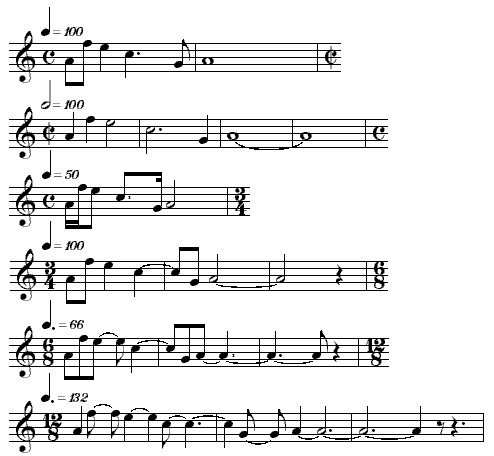 From a mathematical perspective, all six of these individual lines of music are exact equivalents - the same melodic line written six different ways - (The bpm tempo numbers have been rounded to whole numbers and rests have been added to complete the last measures as needed).
From a mathematical perspective, all six of these individual lines of music are exact equivalents - the same melodic line written six different ways - (The bpm tempo numbers have been rounded to whole numbers and rests have been added to complete the last measures as needed).The musical differences between these methods of notation are reflected by the beat and pulse.
These are only a few ways of writing this line of music; as with all music, there are many others. However, there is always a "best" method, depending on the nature of the composition.
Written in Common Time
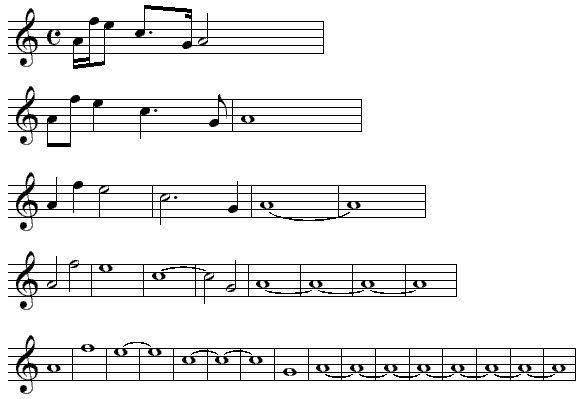
This same melodic line written five ways in 4/4 (common time). Each line has note values which are twice the previous. Tempo(s) (not indicated), as in all of the the other examples of this melodic line, is/are the only variable.
Pulse Indicated Examples
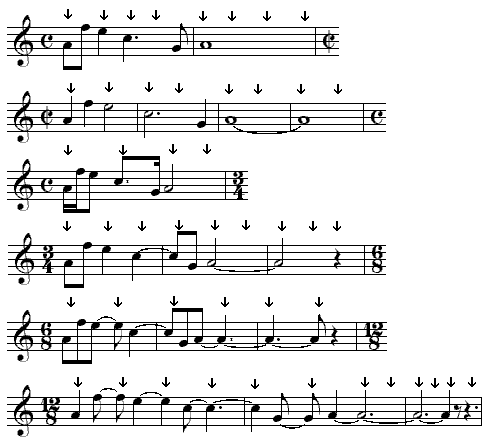
Here are the same examples with pulse indicated (by arrows). Notice how often, but not always, the pulse and the beat of the time signature occur at the same time.
Usually, time signatures X/8 have a pulse (and are counted) in groups of three eighth notes.
Usually, time signatures X/8 have a pulse (and are counted) in groups of three eighth notes.
Another Five Methods
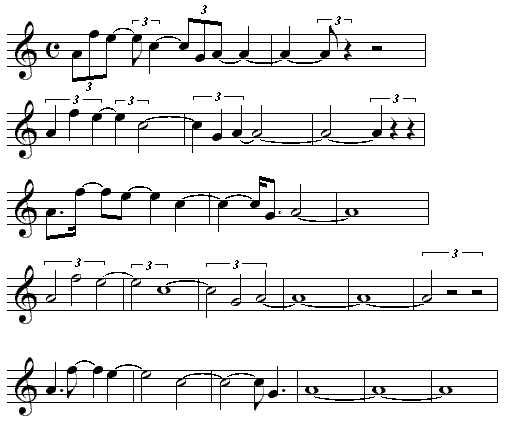
Another five methods of writing the melodic line in 4/4 (common time) - (Again, rests have been added to complete the last measures as needed)
In 6/8
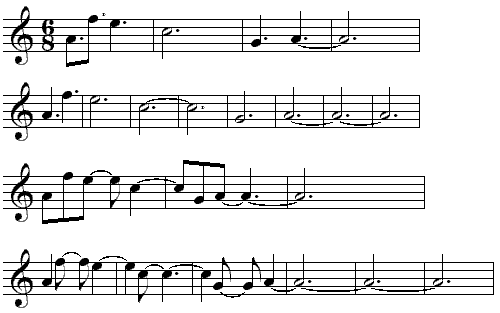
Here the melodic line is written four ways in 6/8.

